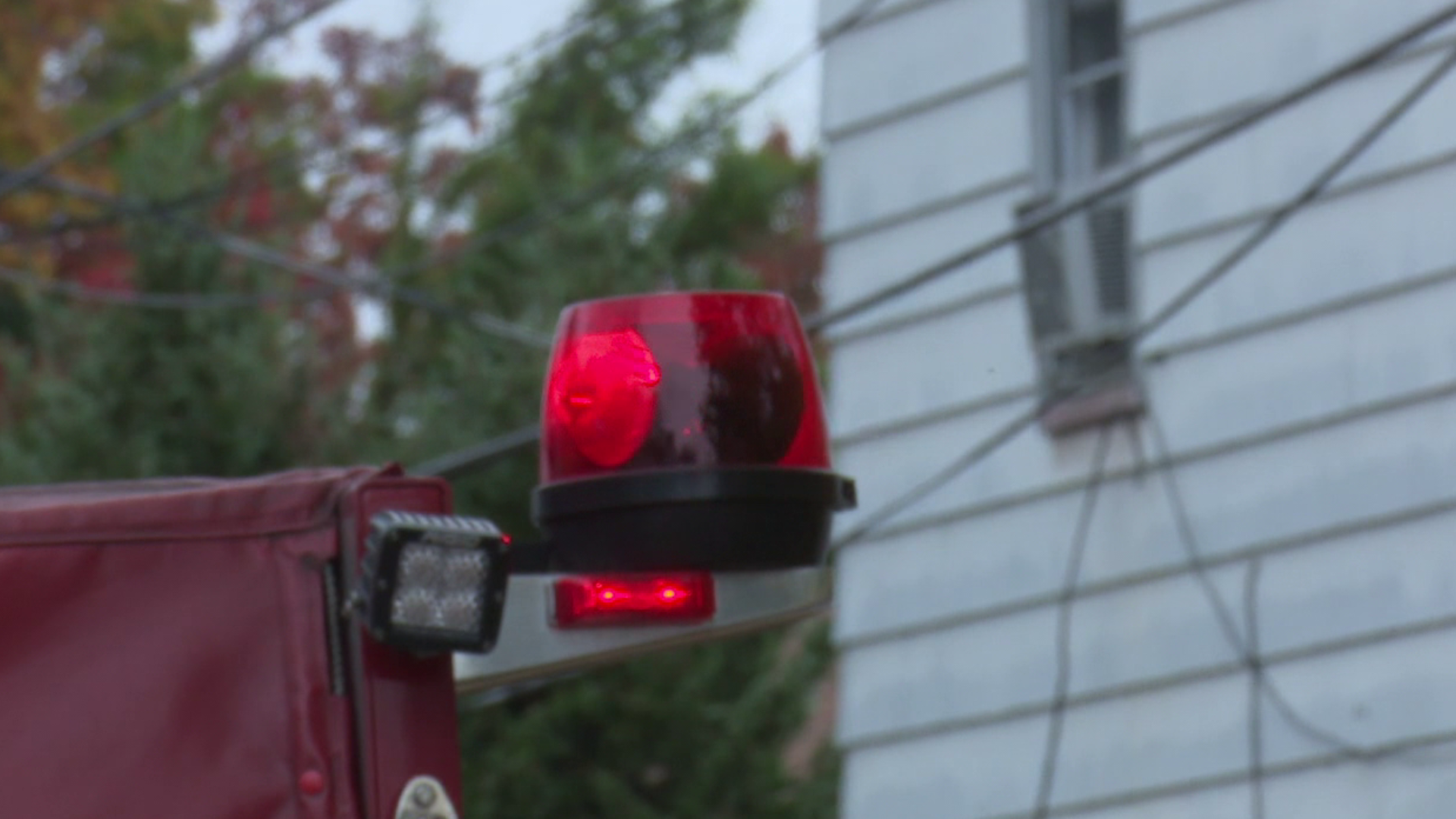SCRANTON, Pa. — It's no secret that being a firefighter is not a job for the faint of heart.
When members of the Scranton Fire Department have to put their training into practice, the potential consequences on their mental health will be real.
Lt. Brian Scott explained the kind of stress firefighters experience every time they get a call.
"Automatically brings your heart rate up, and you're going through a mental checklist in your mind of what you need to be doing. You feel like you're just not moving fast enough," Scott said.
We saw it play out in real-time. We had to stop the interview so the crew could head to a call.
Fortunately, this turned out to be a false alarm, but not every call ends well.
"We typically see people at their worst, you know, one of the worst moments of their life," said Scranton Fire Capt. John Judge.
"Sometimes the things you see on this job, it's just, it's too much for some people sometimes," Scott said.
Members of the Scranton fire department know this firsthand. One of their firefighters died by suicide about a year ago.
"It becomes real at that point," Judge said. "Not a day goes by where our members don't think about that."
"We're still feeling the effects of that," Scott added. "That was really hard on our department."
Post-traumatic stress disorder, substance abuse, and other mental health issues have been ripping through the ranks of fire departments, law enforcement agencies, and paramedics for years.
But it's only recently that we've seen a shift in the way suicide awareness is talked about among first responders.
"I always ask EMS providers or first responders as a whole, 'Are you the same person that you that you were when you started doing this?' And I've never had anybody say yes," said Robert Carpenter, the regional education coordinator for EMS of Northeastern Pennsylvania.
Carpenter personally knows three first responders who have died by suicide.
"The big thing people say is, 'You signed up for this. You should know what you're getting into.' We signed up to help people. We didn't sign up to see people die," Carpenter said. "But even when I got involved in this, I didn't realize the magnitude of what you are going to see and how that's going to affect you."
State Fire Commissioner Bruce Trego says Pennsylvania consistently ranks among the highest in the nation for first responder suicides.
"Some people might say that it's due to the fact that we have more volunteer fire companies. We have more fire companies from Pennsylvania than any other state," Trego said. "One of the biggest concerns we have is because of the number of volunteers; how many suicides have taken place that we don't tie to the fire service?"
And especially with volunteer companies, there's a fear that the financial impact of COVID-19 will cause the numbers to rise.
So what's being done to address the situation?
The state recently rolled out a set of online courses on mental health, available at no cost to all first responders.
Internally, the Scranton Fire Department is setting up a peer review system. Members will get trained on how to talk to their fellow firefighters about any issues they may be dealing with.
A new protocol calls for a certified counselor to be on hand any time after the department responds to a particularly difficult or tragic incident.
"We all just get together, and we talk about what happened, and it makes a big difference. It does."
But perhaps the most important change is taking place on a smaller scale. It's a push for first responders to feel comfortable, even bringing up the subject of mental health.
"Usually, what we got was, 'Suck it up, kid. That's part of the business,' and we need to get away from that," Trego said.
"When I got hired, you didn't talk about that. It was, 'You're the tough guy. Suck it up, you know, deal with it. That's the job,'" Scott said.
But they know how to do the job; mental wellness is just as important as physical wellness.

